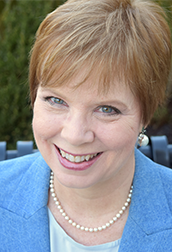Two- year-old George bounded down the center aisle with his big brothers and plopped down on the red carpeted steps in front of the communion table. Two seconds into the children’s sermon George stood, climbed up and cozied himself right into Rev Joe Walker’s lap. Though we were only eight minutes into the 9:01 worship service, with offering, communion and sermon still to go, for me the worship was already complete. This was exactly what we had all prayed would happen when we launched the new 9:01 worship service. We wanted children and families to feel completely welcomed, fully embraced, in God’s sacred space.
But children are not the only ones longing for love to be revealed in more than words. Recently I read that, “The General Social Survey found that the number of Americans with no close friends has tripled since 1985.” “Zero” is the most common number of confidants, reported by almost a quarter of those surveyed. Likewise, the average number of people Americans feel they can talk to about ‘important matters’ has fallen from three to two (Caroline Beaton, “Why Millennials are Lonely” Forbes, Feb 9, 2017).
Without Shari, Gary, Dana, Julie, and other friends I met at church during my own trying teenage years, I cannot imagine how I would have made it through or who I would have become. Those friends at church provided a safe haven when the pressures were too much. And when life seemed easy, they shoved me to move out beyond myself and extend God’s compassion to people who suffered.
In an increasingly polarized world, church is one of the few remaining places where we come together, not because we agree on politics or social issues but because we trust that some grander force binds us to one another. In this safe zone called church, we can provide each other the comfort of God’s tenderness but also the challenge of God’s vision.




